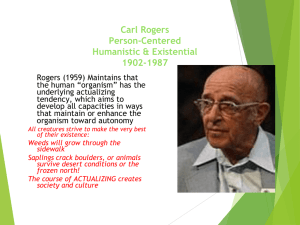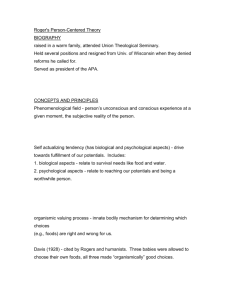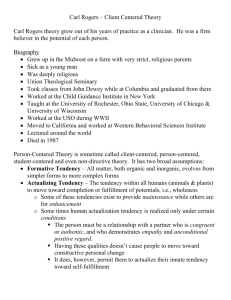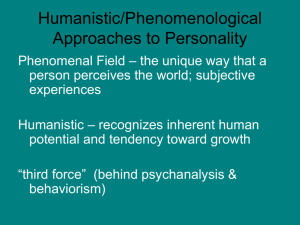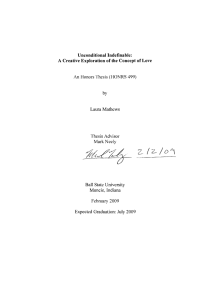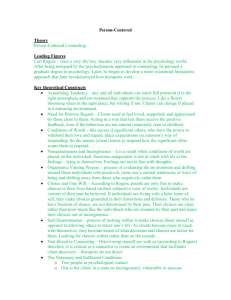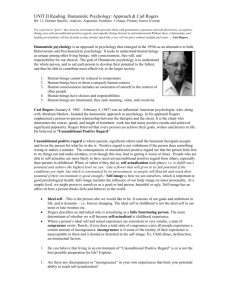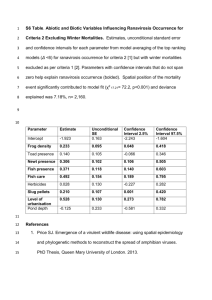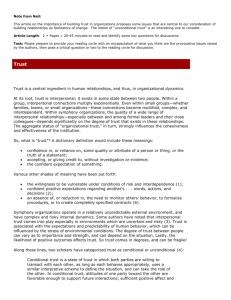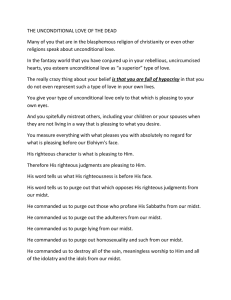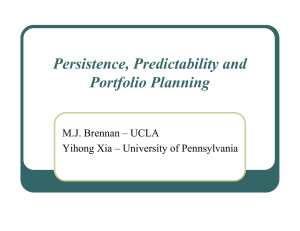Unconditional Positive Regard: Definition & Development
advertisement
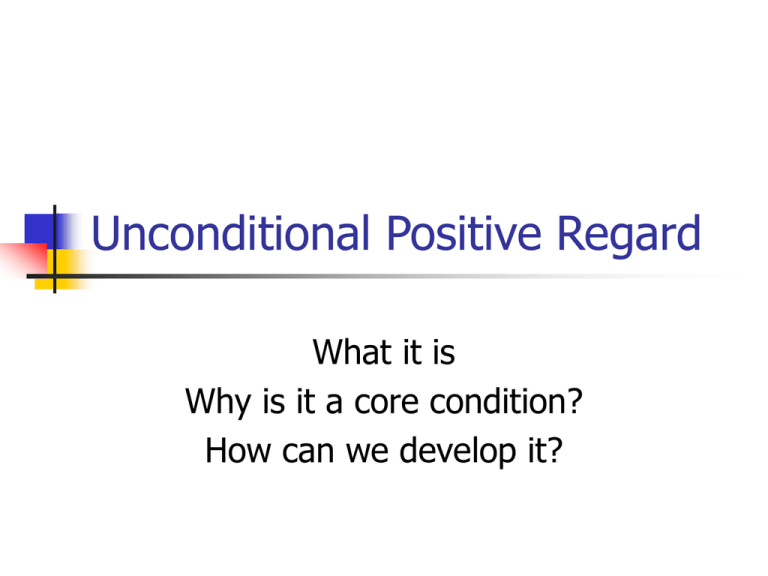
Unconditional Positive Regard What it is Why is it a core condition? How can we develop it? Setting the Scene. UPR Deep Openness. A Poem. Openness and emptying. Fear and excitement of the unknown. Meeting and experiencing the other and myself in our moments of meeting. Empathy from inner self- from the heart. Deeply genuine, transformational. Armin Klein Personal Reflection Take some time to reflect on your own definition of Unconditional Positive Regard. Is there a symbol, word, phrase, image, song, which would represent your understanding/definition. Labels and Blocks. Conditional Presence. Think of a person with whom you imagine it would be challenging to experience UPR. Are there particular personality traits or behaviours which would make this difficult for you ? Unconditional Positive Self Regard Unconditional Positive Regard is an extremely difficult attitude to develop…it involves the counsellor in considerable personal development work to attain a level of personal security and self acceptance which reduces her need to protect herself against others. Dave Mearns Acceptance As the client experiences the attitude of acceptance which the therapist holds towards him, he is able to take and experience this same attitude towards himself. As he thus begins to accept , respect , like and love himself, he is capable of experiencing these attitudes towards others. Carl Rogers Respect I only walked with her, following her self direction, going with her at her own pace. I trusted her self determination. I did not try to diminish her desperation, fear or powerless feelings. To the extent that I was fully present with her as she experienced these feelings, I accepted the feelings. It was never my intention to change her or her feelings…to me her panic , her desperation, and depression were acceptable parts of her… Elizabeth Freire Belief in Self and in the Other I believe that I am of infinite worth and all others with me. I believe that I need not be afraid of my inner world and must strive fearlessly to be in touch with it even if this is painful or confusing. I believe that it is my task to remain open to experience both inner and outer I believe that the other deserves my understanding and not my judgement. I believe that to understand the other’s world and to communicate that understanding is an essential part of being human I believe that unconditional acceptance both offered and received, dispels fear and opens up the path to authentic living. Brian Thorne Some Pointers Be congruent in the relationship Maximize your own Unconditional Self Regard. Maximize UPR through empathic experiencing of the client. Focus extensively on the frame of reference of the client. Keep asking yourself,' what is it like for this person? Trust the client to develop her own direction at her own pace, and in her own way. Let go of any pre-suppositions of what might or should happen in any given session. Jerold Bozarth References Mearns, D (1994) Developing Person Centred Counselling. London: Sage Publications. Rogers,C R (1951) Client-Centred Therapy: It’s Current Practice, Implications and Theory. Boston: Houghton Mifflin Freire,E (2001) Unconditional positive regard: the distinctive feature of client centred therapy. In J. Bozarth and P. Wilkins (eds), UPR: Unconditional Positive Regard (pp. 145-54). Ross-on-Wye: PCCS Books. Thorne, B (2002) The human person: hope or despair?. In: The Mystical Power of Person –Centred Therapy. London: Whurr Publishers. P.13
